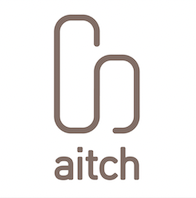Work is changing - long live the change
We’re working harder - and faster - than ever, so it's no surprise - in fact, it's about damn time, that the four-day work-week movement has arrived. Countries and companies around the globe are starting to explore this approach in the new aka. post-pandemic world. The U.K, Scotland, Spain, Japan, Iceland and the UAE are all trialing the four-day work week; condensing the working week to four days with three for leisure to compensate and recover from the relentless and intensive way we work these days.
The five-day work-week was created during the first Industrial Revolution for factory workers. People were newly migrating to the cities from the farms and doing manual labour for 10 - 12 hours a day. The two-day weekend was set to give workers recovery and down-time from work that was physically strenuous. It was a different time and a different type of work.
Work is different these days, but with technology, and indeed, the 4th industrial revolution, connecting us at lightning speed; work is faster than it’s ever been. It’s no longer physical labour, but intense mental heavy lifting, which we’ve practiced into highly effective mental conditioning. We call this productivity and have normalised overextending ourselves. We’re still even doing it for 10 hours a day.
But burnout and over-working is plaguing us - it has affected me and many people I know. The idea of work-life balance feels like a myth in our always on culture where calls run into the evenings, where emails roll and WhatsApp's ping late into the night. The work never really sleeps. Both corporate and start-up culture have had us convinced our work lives are the only thing to live for, and everything else can take a number after it. I know I'm guilty of that.
Prioritising downtime to rest and recover - and avoid continual slippage into the burnout so many people are experiencing in the modern working world - is the missing node of balance that gives purpose to all this hard work. The work week we know has been global practice for over a century. However, it's taken a global crisis for this model to be scrutinised and debated. Economies have long evolved to do business digitally and are ever innovating to become more digital, more sustainable and global-reaching.
I'm here for the change - it’s time to adapt this outdated model to counteract the modern, always-on work ethic that has become the norm. The pandemic has allowed us this moment of reflection, after all. A wellness-focused, human-led reprieve from the madness of capitalism is due.
The Friday Experiment
I’m trying out the four-day work week myself this year. I was given forced perspective after experiencing a debilitating burnout in late 2020 that took me off the playing field for 6 months. This season of go-slow after years of multi-managing start-up businesses and overlapping projects, constantly in 5th gear, fundamentally changed the way I see and understand my human capacity. My actual capacity - not the conditioned one.
My burnout was a matter of forced rest for not having better boundaries in place; for not slowing down to process a series of life events, for not respecting my mental capacity, energy levels and exhausted nervous system. For not being present with myself long enough to be honest with myself. As a solopreneur, it was up to me to keep all the balls in the air and I’d simply gotten used to overriding my common sense. I was all ‘yes, yes, go' when I needed to say ‘no’.
This year, I’m on a gentle mission to make space, with my Friday’s open and unplanned to seize the energy of that day. Making space for more time with myself, exploring creative ideas, spending time with words, reading the pile of books I haven’t gotten to or course work I can never find time for. For taking a beach day to catch my breath and absorb some feelings of well-being. It sounds incredibly indulgent and it is, well, until it becomes the new normal.
The Beatles sang that ‘eight days a week is not enough to show I care’. It pretty much sums up the we’re all working right now - there’s never enough time to show we care. We're constantly cycling through hoops to prove ourselves. To do more, be more and achieve more. To one-up the next person for personal or professional gain. We've eroded our essence and our spirits by doing so.
As we’re eeking out the other side of this pandemic, we have new notions to turn to: we’ve learned a lot about ourselves, our lives, the way've lived in the past and the way we want to live in the now and more smartly in future. The crazy bubble has popped and its time to course correct, to action our new understanding and operate from this place of new knowledge.
It's time for the new economy and new rules apply.

